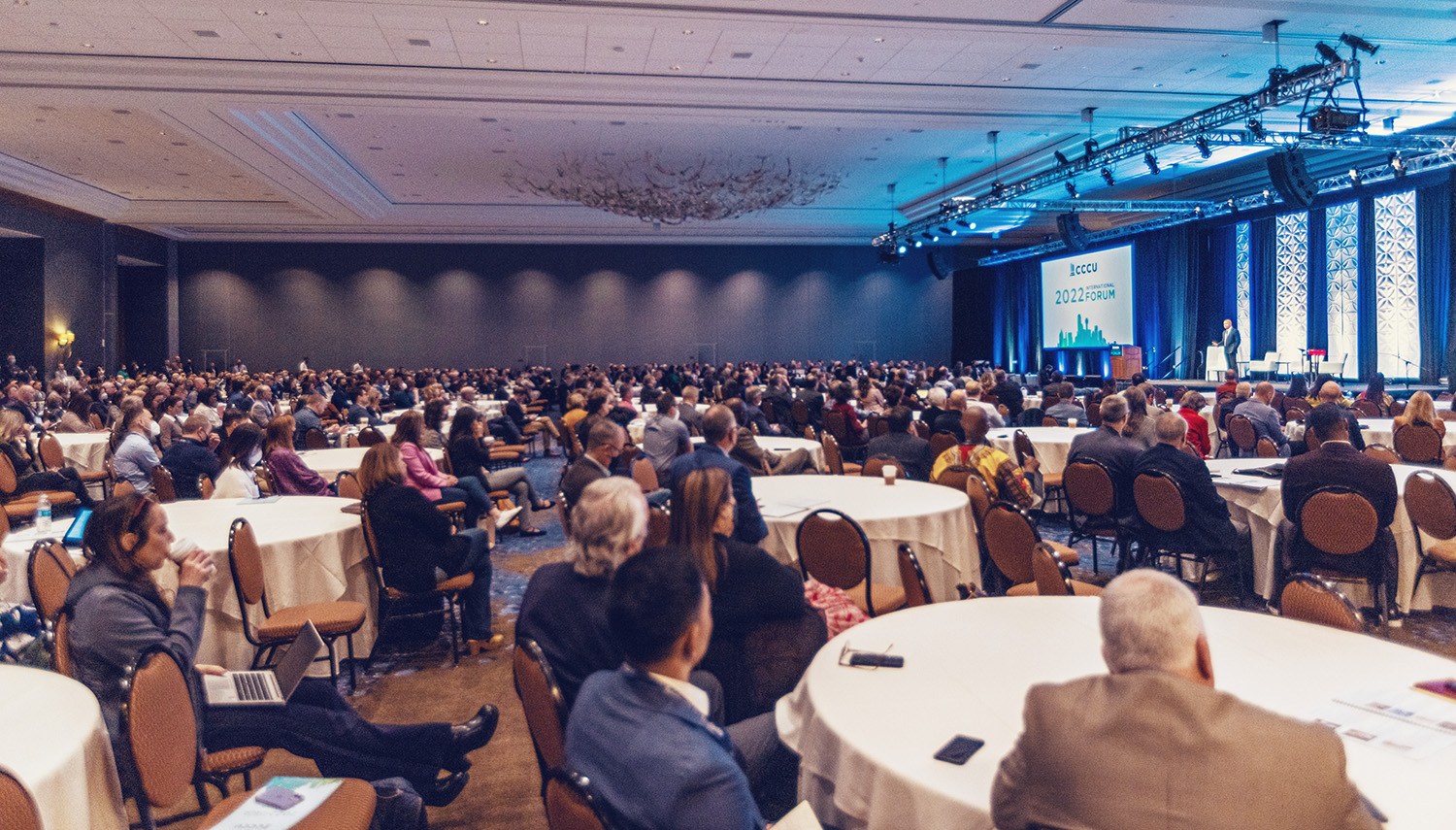[ad_1]
(RNS) – In recent years, conservative Christian colleges have re-emerged as a fault line in evangelicalism’s ongoing process of defining itself in relation to the larger culture and controlling its own boundaries.
The 2015 U.S. Supreme Court Obergefell decision, which legalized same-sex marriage in all 50 states, appeared to snuff out what had been a flashpoint among evangelicals, who began to defeat abortion again and to defend religious freedom at the ballot box and in their advocacy. Candidates who ran in the 2016 Republican presidential primaries seemed to find no benefit in running against Obergefell.
The feeling was that the debate over LGBT rights and marriage for same-sex couples had been lost in the wider culture and it was time to move on. But for many Christian colleges, moving on hasn’t been so simple.
On one side are their students, who are, after all, the paying customers who are increasingly demanding that their schools tolerate differing viewpoints. In 2019, researchers from Ohio State University and North Carolina State University found that 85% of incoming students at evangelical colleges and universities considered it at least moderately important that their campuses be LGBT-friendly, 44 % finding this very important.
On the other hand, there are the federal government’s financial aid programs, which help students pay for their studies. While courts have largely ruled in favor of the rights of religious schools to operate in accordance with their beliefs, lawsuits are springing up challenging those decisions based on Title IX of the Civil Rights Act barring those who discriminate based on sex, including sexual orientation and gender identity, to receive federal funds.
Last year in Oregon, 32 LGBT religious college students filed a class action lawsuit arguing that the US Department of Education is “required by Title IX and the US Constitution to protect sexual minority students and gender at taxpayer-funded colleges and universities, including private and religious institutions that receive federal funding.
Since 1976, the Council of Christian Colleges and Universities, an association of denominational Protestant schools, has been a bulwark against such arguments. The CCCU has long championed the right of its members to act in accordance with their belief that biological sex is binary and unchangeable, that marriage is between a man and a woman, and that sexual relations are reserved for such unions.
Representing schools from 35 different denominations, each of which maintains denominational responsibility according to its own political system, ecclesiology and theological tenets, CCCU is the first place to look when considering the future of Christian colleges and universities. , and in fact, the fast pace of social life. , legal and policy changes have left some conservatives wondering if CCCU has gone too far in adapting to the new landscape.
In 2015, two colleges affiliated with Baptist state conventions left CCCU because they believed the association had not moved quickly enough to expel a small handful of member schools that had decided to affirm marriage. homosexual. Four years later, the two institutions, Cedarville University in Ohio and Union University in Tennessee, have helped form a new association called the International Association of Christian Educators, led by David Dockery, a respected former president of two CCCU schools and now Distinguished Professor of Theology at Southwestern Baptist Theological Seminary in Fort Worth, Texas.
While it is tempting to assume that the IACE would compete with or weaken the CCCU, the opposite seems to be true: twenty of the more conservative CCCU schools are also members of the IACE, and some Southern Baptists have says that while they saw IACE as a more trusted guardian of biblical and denominational orthodoxy, all educators I spoke with appreciate CCCU’s robust lobbying and legal advocacy in defense of conservative Christian schools .
Indeed, the CCCU experienced a net gain in membership under the leadership of Shirley Hoogstra, who became its President in 2014.
But schools are undeniably worth watching as institutional evangelicals debate topics like LGBTQ acceptance and systemic racism and what to do about them. During the Trump years, politics served that function. When it was suggested that evangelicalism’s treatment of sexual abuse, sexism, racial insensitivity, or unquestioning allegiance to Republican politics revealed something problematic in the fabric of evangelicalism itself , institutional elites backed down, saying the movement could thrive alongside Trumpism.
But a handful of CCCU institutions are charting a more moderate course, formally sticking to conservative biblical interpretation of sex and gender while being more open to students and faculty with different viewpoints. And they stay.
Moderate and liberal critics who choose to remain in evangelical institutions pose a problem for faith keepers. Unlike secular progressives, they affirm historic Christian beliefs; they believe, along with the rest of ecumenical Christianity, in a more robust version of social and racial justice than Southern republicanism has ever demanded or will ever demand. Basically, some of them will come to believe that the biblical and divine plan for marital love can include God’s LGBT children.
But if change does come, it will be phantom change that may well be almost imperceptible, peaceful and dignified compared to the bowing of evangelicals to past administration. The conservative Supreme Court, meanwhile, will likely shield them from lawsuits like Oregon’s.
The IACE and CCCU dynamic also promises to work in favor of the schools, acting almost like a pressure valve: IACE schools generally have stricter safeguards to quickly expel progressives or prevent their hiring. in the first place. CCCU schools tend to have tenure policies or denominational processes that can more easily accommodate LGBT-affirming faculty — or will deal with dissent more slowly.
Ultimately, institutional evangelism can resist developments that have made many Catholic universities or historically Protestant schools indistinguishable from any mainstream institutions, retaining their traditional views on marriage and sexuality as long as evangelicals maintain them.
(Jacob Lupfer is a writer in Jacksonville, Florida. The views expressed in this commentary do not necessarily reflect those of Religion News Service.)
[ad_2]
Source link

